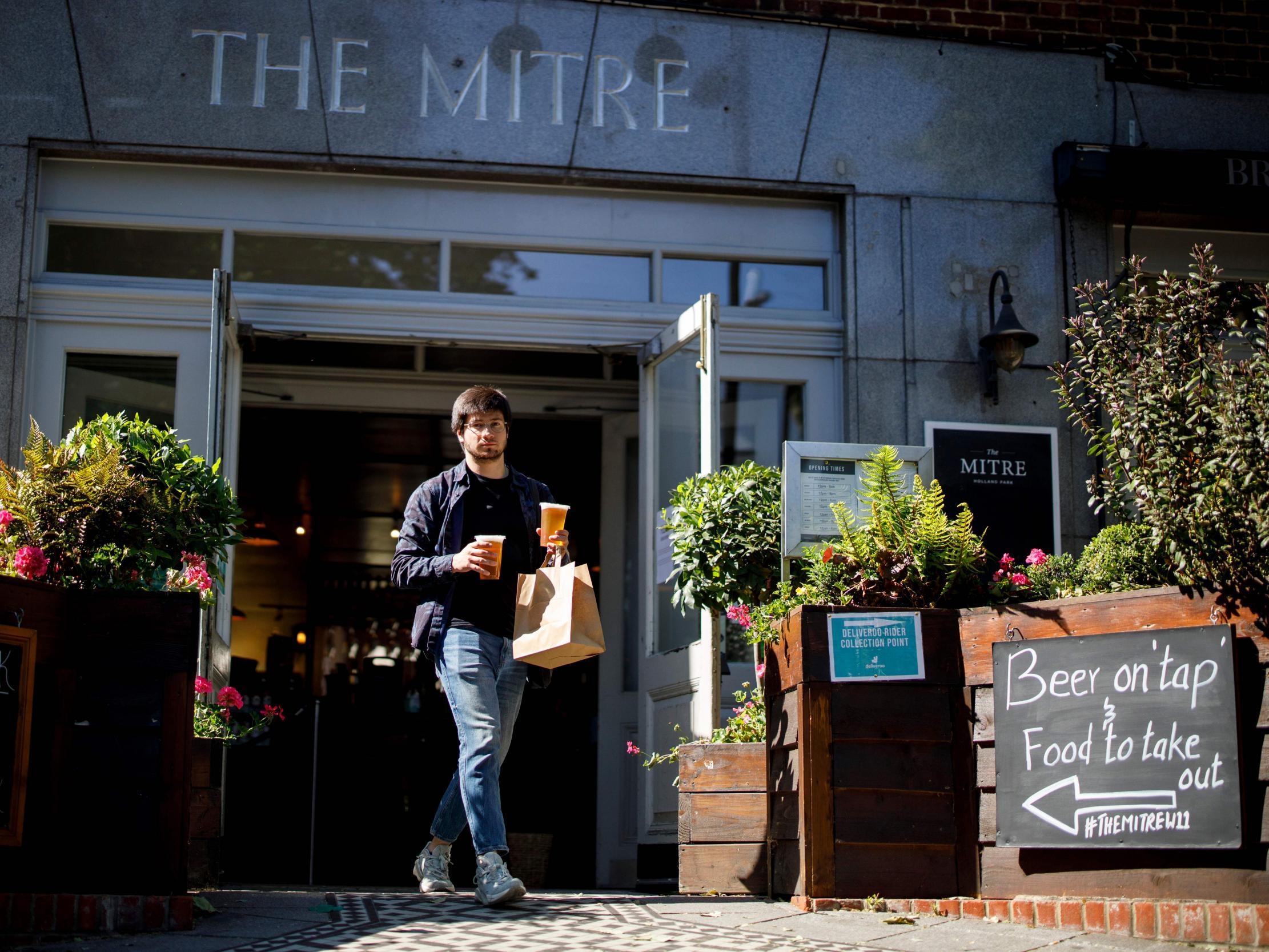‘Independents have come into their own’: Small businesses are adapting while chains flounder during lockdown
The big chains lack the energy and zest that led to them dominating the market. From now on, I’ll use the smaller garage, the independent pub, writes Chris Blackhurst


Call me mad, but I’ve started playing a game where I live. As I walk my dogs I make a mental note of those businesses that remain firmly shut, and those that have made an effort to open.
One garage is closed, another is open. On the face of it, from my position, there is nothing to choose between them: they’re both of similar size; they both employ roughly the same number of people; they offer pretty much exactly the same repair service. Yet while one shows no sign of life, the other has been repairing cars, albeit with adaptations for PPE and social distancing, for weeks now.
It’s the same with the pubs. One is doing a roaring trade with takeaway food and drink. Meanwhile, the much bigger pub right next door remains firmly boarded up.
The pizza restaurant is empty, its chairs and tables stacked up, and the usual, by now fading, “coronavirus” notice stuck on the door. Meanwhile, the small, family-run Italian is selling pizzas for delivery and collection, starting at 4pm until late into the evening, every evening.
I could go on, but you get the picture. All the way along our high streets this experience is repeated: one outlet is desolate, another has its lights on and signs of life – and customers coming and going.
It’s the same on the web. Some sites simply have a bland “coronavirus update” across the top of the home page, and that’s it. Their phones remain unanswered and go to a robotic voice message; emails are not replied to. Go somewhere else, they might as well be saying. At the same time, others in exactly the same line of business are taking calls and responding.
Everywhere you look, some firms appear to have resigned themselves to not reopening for a long time; to not doing anything. It’s almost as if they’ve gone away completely. Yet still others are determinedly keeping going.
Of course there may be practical reasons why this should be so. Those that now wear the abandoned look may not have premises that lend themselves to reopening – the social distancing rules may not allow it. Their supply lines may have broken down. But as I say, to my admittedly untutored eye that does not appear to be the case. And some, it must be said, have used the pandemic as a cover and they really have gone for good.
One factor that does distinguish those that are shuttered is that they tend to belong to large chains. Take the pubs. The one that is serving beers in plastic glasses and jugs, and takeaway food in cartons, is an independent. Its grander, bolted, neighbour is part of a group.
Can the bosses of the chain be bothered to even try? Much easier, possibly, to pack up and wait for the all-clear – and in the meantime take advantage of Rishi Sunak’s handouts. It’s understandable, especially when the chancellor is being so generous. But, I ask you, which one is showing better business acumen, which one is displaying imagination and creativity, which one is trying to retain, and even build, a loyal customer base?
Yet the evidence of this crisis says something different, that UK plc lacks energy and zest, and is beset with ranks of chieftains who cannot think left-field
Ever since the lockdown began, the independents have come into their own. There’s been plenty of chat about “locals” stepping up, and advertising home deliveries and stressing they’re still functioning. It’s become a topic of conversation that so and so is open, that this operator has good stock and is taking calls, that they’ll do click and collect or they’re on Deliveroo.
What’s alarming, though, is the sheer inflexibility on display elsewhere. It cannot augur well for our economy, for the future of retail and hospitality – but other sectors also – that so many of our enterprises simply do not know or have forgotten, what it takes to be entrepreneurs.
The one-size-fits-all approach is their mantra and they’re sticking to it. Long gone is the ability of the individual manager to run their branch as if it was his or her own business, as if their lives depended on it. At head office they will argue that this is not the case, that all managers are encouraged to think out of the box and to treat the branch as theirs, to attempt new initiatives, to adapt and to meet their local market needs.
They will point to “away days” and get-togethers and competitions where all sorts of games have been played and exercises undertaken, each of them designed to make their employees self-start and take charge. The sessions will have been hosted by experts in motivation and extracting better performance. Yet the evidence of this crisis says something different, that UK plc lacks energy and zest, and is beset with ranks of chieftains who cannot think left-field, who prefer to default to the softer option, and apply a uniform formula across all the operations. And they wonder why so much of our corporate life is struggling and is so reactive rather than proactive?
I might have gone to the bigger garage because, well, it’s bigger. Now I prefer the smaller one. Likewise, I quite liked the large pub because its food and service were so “consistent”. But I now realise that’s a byword for boring and I’ve got to know the people serving next door with such charm and enthusiasm. And, it’s obvious really, but the small Italian always did produce better pizzas. The rest cannot say they were not warned.
Join our commenting forum
Join thought-provoking conversations, follow other Independent readers and see their replies
Comments